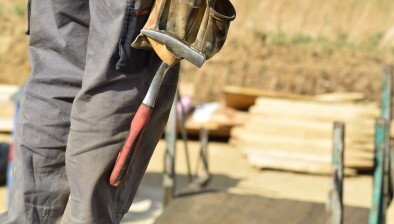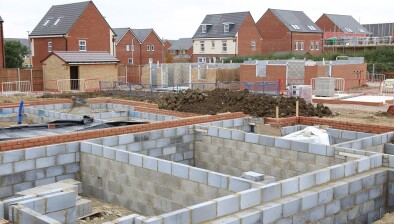Construction output fell by 1.9% in February

Output in the UK construction sector is estimated to have decreased by 1.9% in volume terms in February 2024 compared to the previous month.
The Office for National Statistics (ONS) said this follows a 1.1% increase in January 2024, with the monthly value in level terms at £15,229 million in February 2024.
The decrease in monthly output came from decreases in both new work (2.3% fall), and repair and maintenance (1.4% fall). Anecdotal evidence from survey returns suggested effects of heavy rainfall led to delays in planned work and decreasing output in February 2024.
At the sector level, eight out of the nine sectors saw a fall in February 2024, with the main contributors to the monthly decrease seen in non-housing repair and maintenance, and private commercial new work, which decreased 2.5% and 4.0%, respectively. The only increase was private housing repair and maintenance, which grew 0.2%.
Construction output is estimated to have decreased 1.0% in the three months to February 2024. This came solely from a decrease in new work (3.0% fall), as repair and maintenance increased by 1.6%.
CEO of APRAO, Daniel Norman, said: “February’s construction once again softened after showing slight growth in the first month of the year. There was, of course, hope that January’s upward trend would continue, but it’s not a surprise that the numbers have once again taken a drop, albeit a slight one.
“While February’s poor weather and heavy rainfall will be contributors to this decline, it also suggests that construction firms and housebuilders continue to hold their cards to their chest as the economic hangover of 2023 is yet to fully clear. But with the nation’s economic horizons starting to brighten up, interest rates having already peaked, and a strong need for more new homes, we expect to see construction pick up sooner rather than later.”
“Clive Docwra, managing director of property and construction consultancy McBains, said: “After January’s return to growth following three months of falling output, today’s figures show it’s a case of one step forward, two steps back for the construction sector.
”We see that February’s heavy rainfall led to delays in planned work, particularly in private commercial new work but also in non-housing repair and maintenance, though a slight increase was seen in private housing repair and maintenance.
“Although inflation may be falling, the cost of borrowing remains prohibitive which is stifling wider investment. Private housebuilding is still fragile and over the next few months we expect other work sectors to experience fluctuations in output.
“Given this uncertain economic landscape, and with a general election on the horizon, we can expect the industry to experience similar ups and downs over the next few months.”
Allan Kelly, restructuring advisory partner at FRP, added: “February’s data outlines the construction industry’s uncertain state, having posted growth at the very start of the year. Overall output is heavily linked to the housebuilding sector, which has been subdued by high interest rates for more than 18 months now and continues to act as a drag on performance.
“With the base rate forecast to fall in the coming months, inflation dropping – both of which should help put money back into people’s pockets – and the government having recently published its long-awaited guidance on second stairways in tall buildings, contractors will be hopeful of a resi-led recovery through the course of the summer.
“Insolvency levels are likely to remain high for the foreseeable future though. Trade credit terms have become tougher due to recent collapses, while the winter’s poor weather has held up projects and put a strain on cashflow. This at a time when the cost of doing business remains elevated and firms continue to work through the effects of previous inflation on contracts. 13-week rolling cashflow forecasts should very much remain the tool of choice for management teams trying to manage order books effectively.”

















